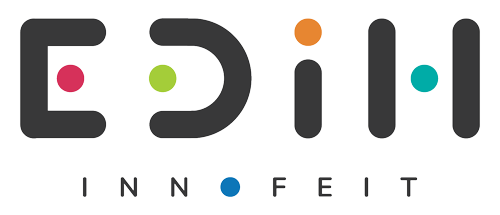This course provides fundamental knowledge of digital forensics, focusing on evidence collection, preservation, and analysis techniques. Participants will explore best practices in digital investigations, file system forensics, and data recovery methods essential for cybersecurity and forensic professionals.
Course Overview Table
| Chapter | Details |
| Partner | Military Academy General Mihailo Apostolski – Skopje |
| Title | Digital Forensics – Essentials |
| Service | Cyber security, Skills and Training |
| Target Group | Law enforcement personnel, system administrators, cybersecurity professionals, and technical staff responsible for forensic investigations. |
| Format | In-Person Training |
| Focused on Key Technologies | Digital evidence handling, file system forensics, data recovery, forensic best practices |
| Status | Ready to offer |
| Stakeholders from SME/PA Side | Law enforcement agencies, IT security teams, enterprises, public sector organizations |
| Requirements for Participation | Basic knowledge of IT, familiarity with file systems (Windows/Linux), and an understanding of system administration principles. |
| Estimated Duration | Two-day (approximately 16 hours) |
Description of the Course
Introduction
As cybercrime continues to rise, digital forensics plays a vital role in identifying, investigating, and mitigating security incidents. This course is designed to equip professionals with essential forensic skills required to collect, preserve, and analyze digital evidence effectively. Participants will gain hands-on experience with forensic methodologies and tools used in real-world investigations.
Technical Context and Examples
The course includes hands-on exercises, case studies, and practical simulations to enhance participants’ investigative capabilities. It will cover methodologies for evidence acquisition, forensic analysis of digital artifacts, and recovery of lost or deleted data.
Detailed Explanation of Core Concepts
The course covers:
- Introduction to digital forensics and forensic best practices
- Methods for collecting and preserving digital evidence
- File system analysis techniques
- Data recovery and forensic investigation tools
- Legal and ethical considerations in digital forensics
Tentative Agenda of the Course
Module 1: Introduction to Digital Forensics and Best Practices
- Overview of digital forensics and its importance
- Forensic investigation process and methodologies
- Legal and ethical considerations
Module 2: Collecting and Preserving Digital Evidence
- Principles of digital evidence handling
- Imaging and forensic duplication techniques
- Chain of custody documentation
Module 3: File System Analysis
- Understanding Windows and Linux file systems
- Metadata extraction and timeline analysis
- Identifying hidden and encrypted files
Module 4: Recovering Deleted Data
- Techniques for recovering lost and deleted files
- Tools and methods for forensic data recovery
- Case studies and real-world applications
Conclusion and Unique Value
By the end of this course, participants will have a strong foundation in digital forensic investigation techniques, equipping them with the skills to analyze and preserve digital evidence effectively. The course bridges theoretical knowledge with practical implementation, ensuring professionals can apply forensic methodologies in real-world scenarios.
Additional Course Information
| Category | Details |
| Developed skills | Participants will acquire knowledge and skills, including: |
| ● Understanding forensic principles and methodologies
● Collecting and preserving digital evidence ● Analysing file systems and metadata ● Recovering deleted and lost data ● Adhering to legal and ethical forensic practices |
|
| Learning Methods Used | ● Lectures and theoretical lessons
● Hands-on labs and practical simulations ● Group discussions and group discussions |
| References/Resources | ● NIST Digital Forensics Guidelines
● Industry best practices from SANS, OWASP, and forensic toolkits ● Open-source and commercial forensic analysis tools |
| Overview Slides | / |
